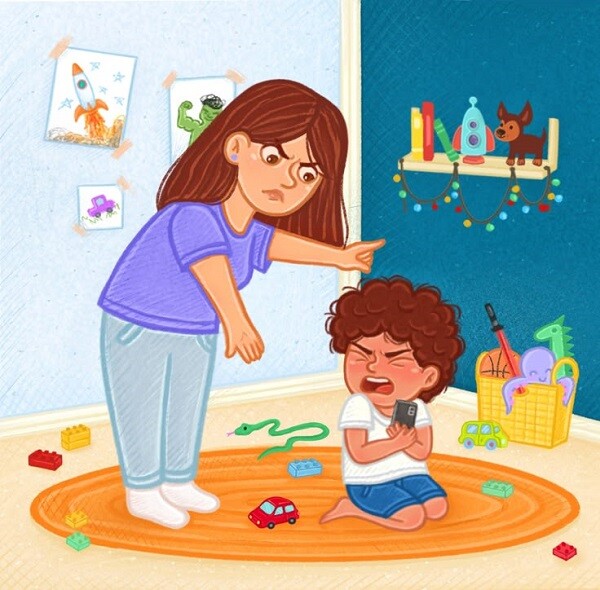Many parents inadvertently put their children’s development at risk by ignoring or indulging their bad habits. If the following three common bad habits are not corrected early on, it could hinder their future growth.


Neglecting Procrastination
Children around the age of five often linger in bed in the morning, eat slowly, and leave their toys scattered on the floor without cleaning up.
Parents might think it’s okay for their child to hesitate a bit since they are still young. However, what they don’t realize is that long-term procrastination can lead to a lack of time management skills and inefficient work habits.
Psychologically, children at this stage start developing a sense of order and time. If procrastination becomes a habit, the neural pathways in their brains related to time management and planning will not be effectively honed.

Children often procrastinate.
Once they enter elementary school, their academic performance may suffer due to procrastination with homework and a lack of proactive learning. As adults, they may miss out on work opportunities due to inefficiency and poor time management, impacting their career advancement.
Therefore, parents should establish a consistent routine and introduce fun time-management games. For example, racing against your child to pick up toys or wash dishes can help them develop a better sense of time management in a relaxed and enjoyable atmosphere, gradually correcting their procrastination habit.

Losing Emotional Control
While a five-year-old’s self-awareness is increasing, their emotional regulation skills are still immature. When they don’t get their way, they may cry loudly, throw things, or even have a tantrum in public.
If parents give in to their demands, it reinforces the child’s use of negative emotions to achieve their goals. Scientific research shows that prolonged emotional outbursts can impact the development of the prefrontal cortex, which is responsible for emotional regulation and rational thinking.

Losing emotional control.
When this area of the brain is underdeveloped, children may struggle to control their emotions in relationships, academics, and future careers. They may act impulsively, missing out on developmental opportunities.
Parents should help their children recognize and express their emotions verbally. Instead of scolding them for crying, try saying, “I know you’re angry because your toy is broken.” Teach them emotional regulation techniques like deep breathing and counting to help them manage their emotions effectively.

Over-dependence on Others
Five-year-olds are transitioning from dependence to independence, but some parents may hinder this process by doing everything for their child.
Feeding them, dressing them, and even resolving conflicts with their peers may seem like acts of love, but they deprive children of the opportunity to develop self-care and problem-solving skills.
Overly dependent children often lack the ability to think and act independently. When faced with challenges, they may retreat and avoid them, struggling to adapt to social competition.
Experts advise parents to step back and encourage their children to do things independently, from dressing themselves to handling simple chores like laundry. This fosters self-confidence and independence, which are crucial for their future.
The period before the age of five is short but pivotal. All habits formed during this time impact future development. Therefore, parents should closely observe and promptly address any negative habits that may hinder their child’s growth.

Parents should foster self-reliance in children.
By using scientific methods and patient guidance, parents can help their children develop good habits and behaviors during this critical stage, laying a strong foundation for their future. This empowers children to confidently face challenges and reach their full potential.
Parents can employ techniques such as creating positive habits through repetition, rewards, and motivation. For instance, when a child completes a task like tidying up their toys, praise and reward them with fun activities to encourage a continuation of that behavior.
Emotional and psychological support is crucial during this phase. Parents should listen, understand, and help their children express and manage their emotions. When children learn to process their emotions effectively, they will approach future challenges with confidence.
The Magic Five: Parenting Methods to Raise Grateful Children, Inspired by Li Ka-Shing’s Wisdom
With Li Ka-Shing’s parenting methods, you can raise your child to be more independent and well-behaved. These methods, honed by one of the world’s most successful businessmen, offer a unique and powerful approach to parenting. Discover the secrets to empowering your child to achieve greatness and foster their growth into confident, self-sufficient individuals.
The Power of Eight: Unlocking Your Child’s Potential for Academic Success
Learning, getting smarter, and excelling in school is an exciting journey, and we’re here to help you navigate it with ease. This infographic guide will take you on an adventure, revealing the secrets to academic success and a brighter future. Get ready to unlock your true potential and soar to new heights!



































